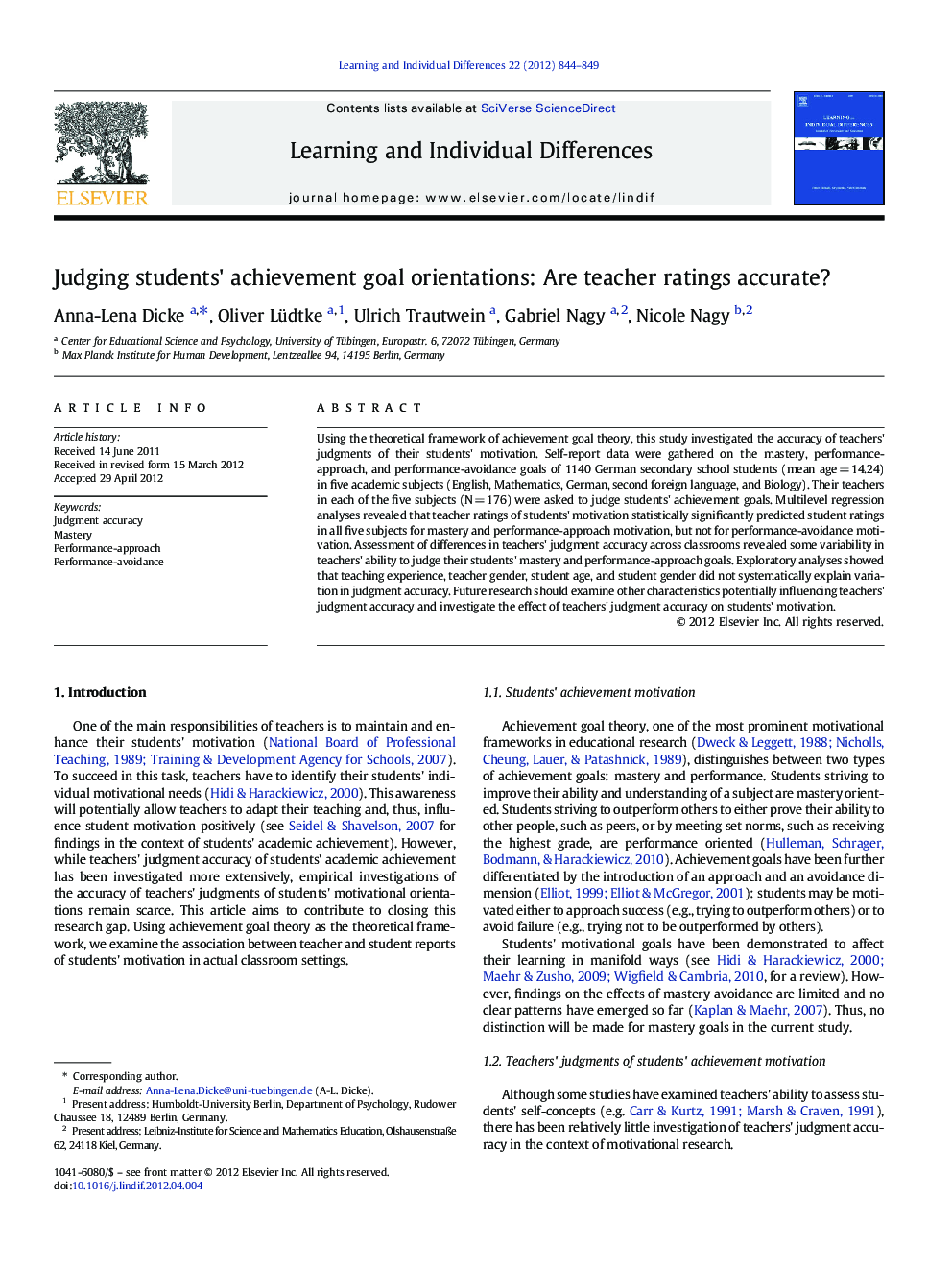| Article ID | Journal | Published Year | Pages | File Type |
|---|---|---|---|---|
| 364870 | Learning and Individual Differences | 2012 | 6 Pages |
Using the theoretical framework of achievement goal theory, this study investigated the accuracy of teachers' judgments of their students' motivation. Self-report data were gathered on the mastery, performance-approach, and performance-avoidance goals of 1140 German secondary school students (mean age = 14.24) in five academic subjects (English, Mathematics, German, second foreign language, and Biology). Their teachers in each of the five subjects (N = 176) were asked to judge students' achievement goals. Multilevel regression analyses revealed that teacher ratings of students' motivation statistically significantly predicted student ratings in all five subjects for mastery and performance-approach motivation, but not for performance-avoidance motivation. Assessment of differences in teachers' judgment accuracy across classrooms revealed some variability in teachers' ability to judge their students' mastery and performance-approach goals. Exploratory analyses showed that teaching experience, teacher gender, student age, and student gender did not systematically explain variation in judgment accuracy. Future research should examine other characteristics potentially influencing teachers' judgment accuracy and investigate the effect of teachers' judgment accuracy on students' motivation.
► Teacher's accuracy in rating students' achievement goals is explored across five subjects. ► Teachers showed low judgment accuracy. ► Teacher's judgment accuracy differed across investigated types of achievement goals.
